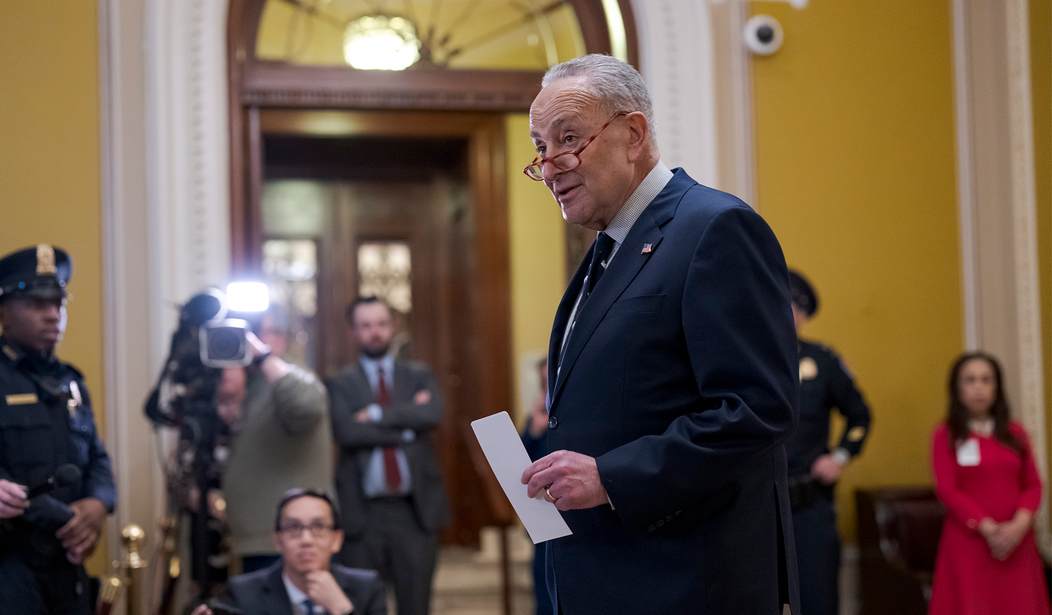Over the course of the several years that Congress has been wrestling with the UFO question and establishing offices to study the matter, one of the leading figures in the Senate driving this effort has been New York Democrat Kirsten Gillibrand. She was the principal author of the original NDAA amendment that established the first UFO/UAP study office in the modern era. She has received bipartisan support in the upper chamber in these efforts from Florida Republican Marco Rubio. But her partner in the Empire State, Senate Majority Leader Chuck Schumer, has been mostly silent on the issue. In the wake of UFO whistleblower David Grusch’s bombshell claims about a secret UAP recovery program and alien bodies, this week, however, that changed in a big way. Schumer introduced an amendment of his own to the National Defense Authorization Act for 2024 that would declassify documents, videos, and other government data regarding UFOs, allowing them to be released to the public. His amendment is a companion piece to one already submitted in the House by Tennessee Congressman Tim Burchett. (Military Times)
Lawmakers in the House and Senate have submitted amendments to this year’s defense budget bill to declassify a greater number of documents related to unidentified anomalous phenomena, or UAPs.
Authored by Rep. Tim Burchett, R-Tenn., the House amendment for the fiscal year 2024 National Defense Authorization Act seeks to provide greater transparency of UAP sightings, especially those witnessed by the public, without disclosing methods of intelligence gathering and sources…
A sister amendment is also making its way through the Senate. Senate Majority Leader Chuck Schumer told the New York Times he was introducing an amendment to the Senate’s defense bill that would give a review board the authority to review and declassify government documents related to unidentified phenomena.
Seeing Schumer team up with Gillibrand, Rubio, and Burchett in this fashion is an encouraging sign. While nobody in either chamber has mounted any noticeable opposition to the various pieces of UFO legislation that have passed, many have seemed to stay largely out of the conversation. It’s possible that even if they are interested, they were still concerned about the stigma associated with the topic and didn’t want to be seen as the elected official “who talks about little green men.” (The little men turned out to be gray, not green, but we can save that aspect of the discussion for another day.)
Burchett is the one member of the House who has been “all in” on UFOs and potentially aliens more than nearly anyone else in the chamber. He has given countless interviews on the subject, calling on the Pentagon to just release everything they have regarding UFOs and let the chips fall where they may. (“We can handle it.”) And I’ve watched pretty much every one of them. If he’s shooting for the title of King of UFO Disclosure, he’s certainly earned it.
This would all be very exciting, particularly to me, if it weren’t for one significant problem. Both of these amendments admirably call for the declassification and release of as much UFO-related material as possible, but they each contain caveats allowing for exceptions if the material “reveals sources or methods” or presents a potential “risk to national security.”
That may sound totally reasonable, and in an otherwise fair and balanced world, it would be. But the Pentagon has been hiding this material (and allegedly running illegal programs outside of the oversight of Congress) for more than half a century. Ever since all of this information started going public in 2017, they have continued to fight tooth and claw to keep everything locked away from the public. Efforts to have them declassify and release any of the additional UFO videos they have beyond the one Sean Kirkpatrick presented when he last addressed Congress have been flatly denied. (And insiders who have testified before Congress already assure us that they have a lot of them.) And they always use the same code when rejecting FOIA requests, dealing with vague possible threats to national security.
Putting that provision into the NDAA transparency language hands the Pentagon a glaring hole in the law that they could drive a flatbed truck with a flying saucer strapped to the back through. We’re going to need some dynamite under the Pentagon’s collective butts to get this material released. And you can bet your last nickel that they will be working to invoke that national security provision at every turn, thwarting these efforts to push toward transparency and disclosure. We shall have to wait and see how the members writing these laws respond to the anticipated continued stonewalling. But even with all of that said, it just feels as if we’re closer now than we’ve ever been in the past. This will turn out to be a marathon, not a sprint, but perhaps… just maybe… the end may be coming in sight.
In the meantime, here’s a recent, brief segment from NBC News covering Schumer and Rubio and their work on the topic. It also features David Grusch. The fact that even NBC is now covering these developments suggests that the lid has truly been blown off of this information and the government’s efforts to cover it all up.








Join the conversation as a VIP Member